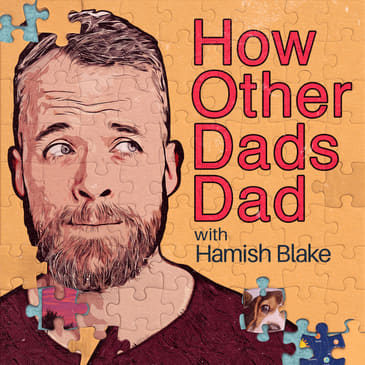Scott Pape, or perhaps as he’s better known The Barefoot Investor, has been teaching Australians about finances for almost 20 years. These days he’s also investing heavily in his 4 kids - and he’s got some great advice for all of us.
Scott tells Hame about his mantra that “These are the good ‘ol days” and explains how it helps him stay focused on what matters most to him. He gives some simple yet powerful advice about what to do if you find yourself in financial trouble. And he helps Hame out of the deep hole he’s dug himself with pocket money.
Scott is of course the best selling author of The Barefoot Investor series of books, and his latest Barefoot Kids has been very popular in our households. However, what you might not know is that he is also now a financial counsellor. So if you find yourself in real financial strife and you give the National Debt Helpline a call on 1800 007 007, there is a chance you might chat with him and he or a colleague can help you navigate your way through it.
Big thanks to Scott for making the time to chat!
---
And big thanks for HERTZ - our exclusive season 2 sponsor. Thanks to Hertz, we are able to bring you all these great conversations. And just like us, Hertz are all about making memories and having adventures. So if you need a great car to complete your next family getaway, head to hertz.com.au/hodd for a great discount. Terms and conditions do apply. See the website for details on these, as some exclusions do apply.
---
If you want to get in touch you can drop us a line at howotherdadsdad.com - We really love hearing from you and really appreciate the funny, heartfelt and moving stories you guys share. Thank you.
See omnystudio.com/listener for privacy information.


